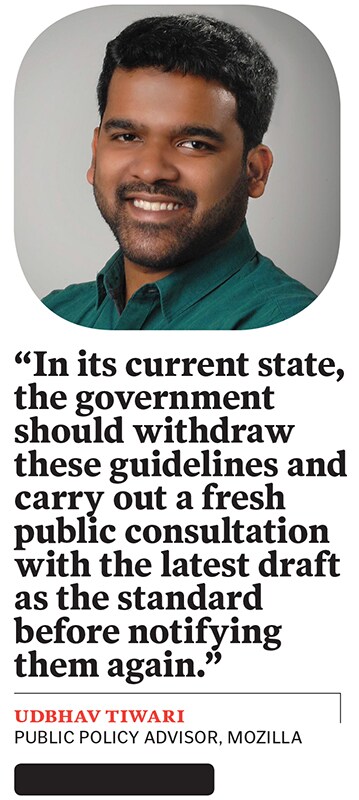
What does it mean to lose safe harbour?
Much has been said and speculated about what happens when an intermediary does not comply with the Intermediary Rules. Forbes India spoke to multiple experts to understand what it means
 Image: Shutterstock
Image: Shutterstock
Let’s get a few of things out of the way: Protection from liability from third-party content—safe harbour—is not a privilege that the Ministry of Electronics and Information Technology (MeitY) grants to intermediaries; it is a default protection offered to the intermediaries as long as they comply with certain due diligence requirements. These requirements have been laid down in the Intermediary Rules that were notified by MeitY on February 25. The central government or its ministries cannot bestow or rescind this protection. Also, an intermediary does not cease to be an intermediary if it continues to provide the same services and perform the same functions; it will not become a publisher. It can only lose its right to offer safe harbour as a legal defence.
If an intermediary is not in compliance, it automatically loses its safe harbour. This loss is NOT decreed by the executive, that is, MeitY even though it may be best placed to assess a company’s compliance. Loss of safe harbour does NOT mean that an intermediary cannot operate in India. It means that now it can be held liable for content that users post on its platform.
Let’s say that the professor plans to rob the government’s mint in Mumbai, and for some reason, plans it out on Twitter, recruits his team there (let’s call them Delhi, Kolkata, Nagpur, Bengaluru and Chennai), and declares resistance against the government there. With safe harbour, Twitter or Facebook will not be held directly liable for being conspirator in this crime as long as they take down the problematic content on getting a court order or order from an authorised government agency, and assist the police with investigation. Without safe harbour, Twitter and Facebook may be held liable for this crime as conspirators even though they had no role in the heist. The Maharashtra police can now directly file an FIR against Twitter and Facebook for being conspirators. Whether or not the companies are culpable in the crime is a determination courts will have to make, but the platforms get embroiled at this stage without safe harbour.
Now consider the fact that Twitter has over 1.8 crore users in India while Facebook has more than 41 crore users. Instagram has over 21 crore and the Indian version of Twitter, Koo, has over 65 lakh users. Imagine if all these platforms were held liable for every piece of problematic content posted on their platforms, despite having no control over what users post, and had to fight every criminal and civil case where they were the medium of communication and nothing more.
Coming to Twitter. On June 15, the Ghaziabad police filed an FIR against a host of journalists and Twitter for spreading misinformation via a video showing Hindu men forcefully cutting the beard of an aged Muslim man. Ironically, Twitter was accused of not labelling the video as "misleading content". That development led to a spate of premature and incorrect articles declaring that Twitter has lost its safe harbour protection and is now a publisher.









